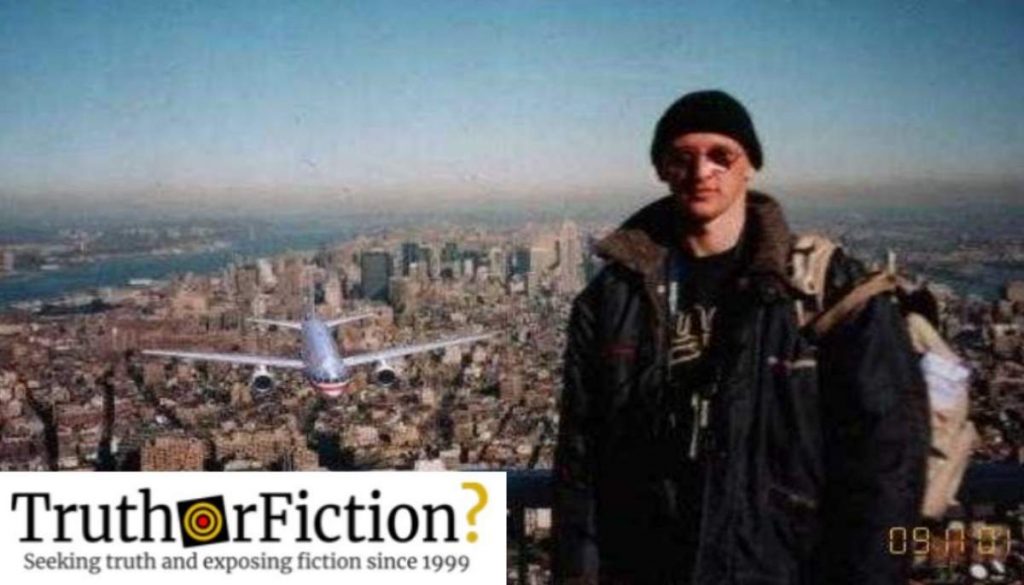A young Hungarian man’s prank turned him into one of the fastest-spreading memes that emerged in the aftermath of the 9/11 attack on New York City.
Peter Guzli gained online fame as the “9/11 Tourist Guy” or “Tourist of Death” after a manipulated photograph circulated online showing him standing on top of the World Trade Center time-stamped to the day of the attack, with an airliner behind him “about to hit” one of the site’s two towers:
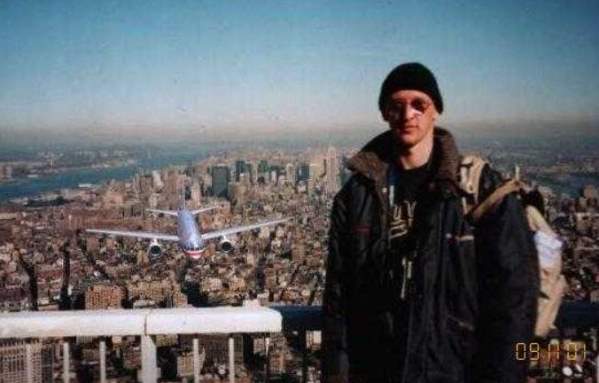
As The Guardian reported that November, the photo spread thanks to chain emails, despite several questionable characteristics:
“This is just an astonishing picture,” said the accompanying breathless message. “This was from a camera found in the wreckage of the WTC, developed by the FBI for evidence and released on the net today… The guy still has no name and is missing.” After days of having their senses numbed by a flood of emotionally charged photographs, many people were momentarily tempted to believe that this was just another image of an innocent seconds away from death. However, even the most computer illiterate of us could soon work out that the picture was a fake, the plane having been added to an older image.
The evidence was overwhelming: why was he wearing a thick coat and hat on what was a glorious early September New York morning? How could he have been on the twin towers’ observatory deck at the time of the first attack (8.45am) when its opening hours were 9.30am to 9.30pm? Why was the plane coming in from the wrong direction over Manhattan?
As so often happens, besides providing fodder for conspiracy theories, Guzli also became fuel for online parodies:
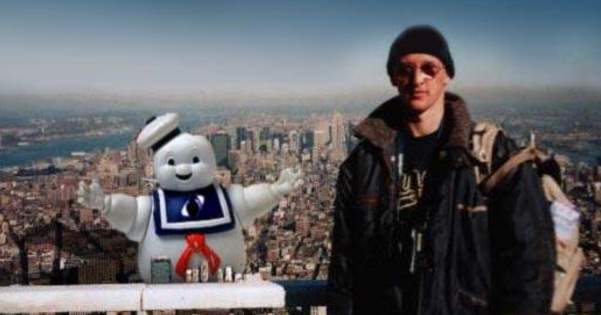
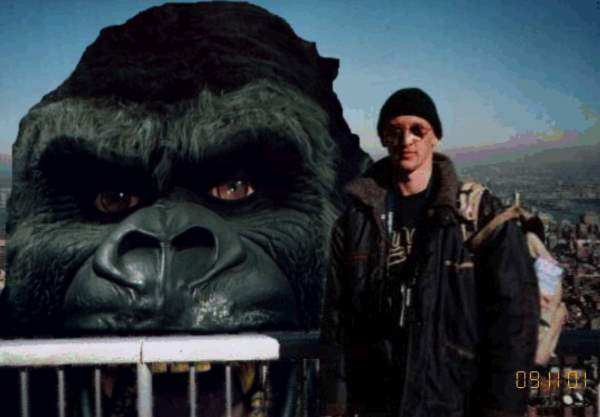
Guzli, who was 25 years old at the time the photo, told the Guardian that he did not set out to become famous online when he altered a photo of himself at the WTC taken in November 1997 and sent it to some friends.
However, he did not reveal himself voluntarily; the newspaper reported that one of Guzli’s friends outed him to a Hungarian news site, Index.hu, after a Brazilian man, José Roberto Penteado, began claiming to be the man in the photo.
“I intended this joke for my friends only, not for people who did not know me,” Guzli later told the Guardian. “I know who the person is [who revealed his identity]. I’ve had a discussion with them, and there’s no hard feelings.”
Guzli also provided the tech news site Wired with authentic photographs of himself from his visit to the WTC:
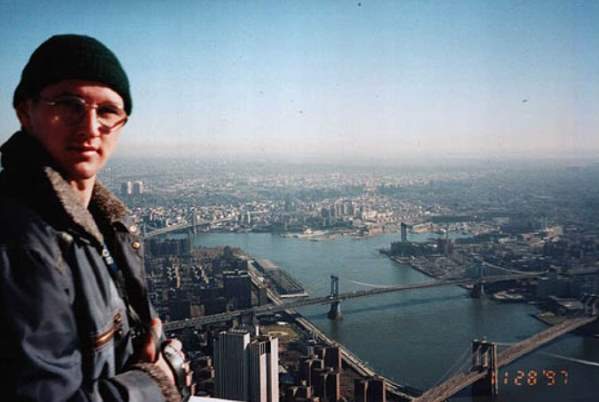
Guzli claimed that the car maker Volkswagen had cancelled an offer for him to appear in an advertisement after his identity was revealed, but did not express remorse for the fake photo.
“I don’t think this thing has to do with empathy or the lack of it,” Guzli said. “The people I intended it for all said they had a great laugh. That’s all.”
Update 08/31/2021, 1:58p.m.: This article has been revamped and updated. You can review the original here.

